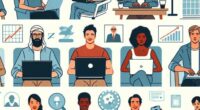Apple Execs Scoff at AI PC Hype, Touting Superior Neural Engine Integration
While the tech world buzzes with the latest advancements in AI-enhanced PCs, Apple’s own Craig Federighi, the tech giant’s senior vice president of software, offers a candid take that cuts through the industry chatter with a mix of humor and hard facts. In a recent lively discussion on John Gruber’s “The Talk Show”, which took place after Apple’s WWDC 2024, Federighi took a moment to address the burgeoning buzz surrounding AI PCs, a hot topic courtesy of industry heavyweights like Qualcomm, Intel, AMD, and Microsoft.
“It’s funny with the AI PC,” Federighi joked, casting a light on the fervor surrounding these devices. His comments underscored how Apple, often seen as a trailblazer in integrating technology seamlessly into everyday life, views the current landscape. Far from being a newfound revelation, Federighi elaborated on how Apple has been a pioneer in embracing neural engine technology for years, inadvertently setting a benchmark that others are now seemingly striving to meet.
The mention of Apple’s AI prowess is not without merit. The company first embedded neural engine technology into their products with the launch of the A11 chip alongside the iPhone X in 2017. This move was more than just a technological leap; it was a statement of intent, showcasing Apple’s dedication to pushing the boundaries of what’s possible with machine learning and AI integration directly in the palm of the consumer’s hand. Federighi’s commentary during the show harked back to this significant milestone, highlighting it as the commencement of an era where AI began to intertwine more deeply with user experiences.
Apple’s journey didn’t stop with the iPhone, however. Federighi was keen to point out that the company’s M series chips, which power the current generation of Macs, also boast integrated neural engines. This sophisticated piece of technology enhances everything from photography and video processing to machine learning tasks, tailored specifically to improve the user experience across Apple’s suite of products. His remarks bring to light a subtle but salient point: while competitors are making waves with announcements of AI integration, Apple has been refining and enhancing its AI capabilities, embedded within the architecture of their chips, for years.
This nuanced approach taken by Apple—to not just embrace AI technology but to seamlessly weave it into the fabric of their hardware, speaks volumes about the company’s strategy and vision for the future. By focusing on the integration of neural engines early on, Apple ensured that its products were not just equipped for the future but were actively shaping it.
Federighi’s candid comments not only serve to deflate some of the hype surrounding AI PCs but also underscore a broader message about innovation and progress. In an era marked by rapid technological advancements, it’s easy for companies to get caught up in the race to announce the next big thing. However, as Apple’s journey with neural engine integration demonstrates, true innovation isn’t just about keeping up with trends—it’s about setting them.
As the conversation about AI continues to evolve, Federighi’s observations offer a grounded perspective on what it means to truly integrate advanced technology into consumer products. For Apple, it appears, the future is not just about AI; it’s about creating smarter, more connected experiences that anticipate needs and enrich lives. And if the past is anything to go by, Apple is not just participating in the future of AI; they’re actively helping to shape it.









